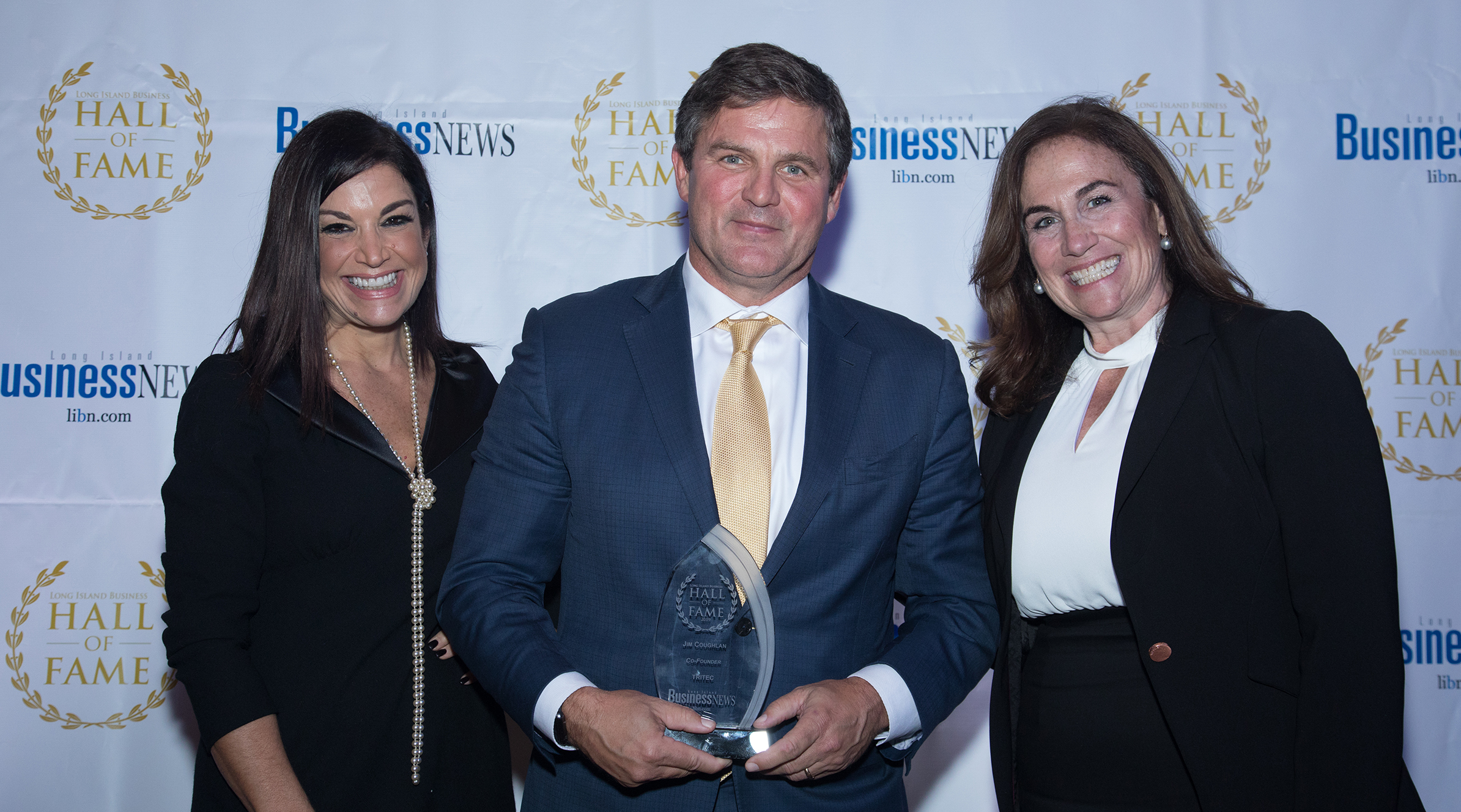On Wednesday, October 30th, the Real Estate Institute at Stony Brook University hosted their Fall Luncheon at the Mansion at Oyster Bay. The topic was “Media’s Enormous Influence on Long Island Real Estate Developments.” Panelists included Chris Kelly, VP of Marketing at TRITEC Real Estate Company, David Winzelberg, a reporter at Long Island Business News, Gary Lewi, Managing Director at Rubenstein, and Brandon Palanker of J Street/EDS and David Pennetta of Cushman & Wakefield moderated.
The moderator began by asking panelists to discuss media in the past, where it is today, and where they believe it will be in the future, addressing both the media and the people reading it.
Lewi began first, stating “media” is an ever-changing, broad topic. He reflected that there isn’t any “front page” news anymore, newspapers aren’t read in every household, and channel news ratings are only up when anticipating a natural disaster such as a hurricane. Keeping that fact in mind, news outlets tend to report bad news first to keep the viewer’s attention, and then they will go on to publish economic news so more people will hear it. He states media companies need to evolve with their viewers, citing Newsday as an example, who changed from a news company to a communications company.
Pennetta continued on about the “Sunday morning newspaper” and how it has evolved to local news websites such as Patch. He claims we are conditioned to believe and trust all written news, even though many articles are not factual, nor are they published from a reputable source.
David Winzelberg referred to conspiracy theories on national news topics and asked the audience if anyone in the room believed them. He made the point that social media can make anyone a “publisher,” and urged readers to not only find their news from resources with a track record of being 99% accurate but to also rely on several news sources, not just one.
Pennetta asked how readers could learn to differentiate from factual reporting to editorial columns. Winzelberg responded, saying he thinks a news literacy course should be required starting in middle school. He explained how news becomes news, and that a huge story may not end up on the front page due to relationships between the paper and the subject of their article. Even though the story real, it is buried deep in the paper to draw less attention.
David Pennetta brings up social media backlash on published articles. He asks how the panel feels about social media comments from people who probably only read the headline and not the actual material.
Brandon Palanker answers first, recalling his experience pre-social media, 2005 when there was still backlash from the community due to presumptuous opinions or false information about the project he was working on in that community. He addresses the issue now the same way he did then, by becoming more involved in the community in which they are doing business.
Chris Kelly added onto this topic, agreeing with Brandon in that a majority of the community’s complaints are the same (traffic, schools, taxes, etc.), social media, or not. He also agreed being involved in the community and having the support of local officials is an enormous help. He states many negative comments come from a lack of understanding of the development, so it is imperative to get involved with the community and attend meetings to answer those questions.
Winzelberg added that involving yourself in community forums, such as “moms groups,” can be beneficial. Pennetta agreed, stating he was added to a group, and eventually kicked out of the group because he held a controversial opinion. Members of the group demanded he be let back in because he had information on the project directly from the source, and not just one-sided views and passed along information. Chris Kelly agreed you could get results this way, but it is often time wasted trying to persuade a limited audience. Instead, try to target your factual posts and articles from trusted sources to a specific location or demographic. This way, the news may reach an entire town and not just the smaller, angry group speaking out against you.
Chris Kelly referred again to the importance of being involved in the communities you are doing business. TRITEC, who has a history of getting developments approved in the age of social media, only works in communities where they are invited. TRITEC learns about the community and makes it part of the development; for example, The Shipyard’s ceiling in the lower level common area models the deck of the last ship built in Port Jefferson. He also talks about 31 West Main Street in Patchogue, originally built in 1897 the cornice of the building was destroyed in a fire in the 1960s. TRITEC found old photos and reconstructed the original cornice which helped build credibility with the community.– noting that it is important to have integrity and do what you promised.
Gary Lewi agreed, talking about how his firm reacted to 9/11 when businesses in New York saw a 20% decline in sales activity. The owner refused to take on political PR accounts because it fell outside the firm’s core beliefs even though the move would have been lucrative.
Key takeaways from the event include: traditional media is in a transition period. Finding trusted sources in the press is essential so you can formulate informed opinions. Social media is untamed but can help provide access to the communities where you work. Acting with integrity as a reporter, developer, or public relations professional is essential to building trust with the community.

